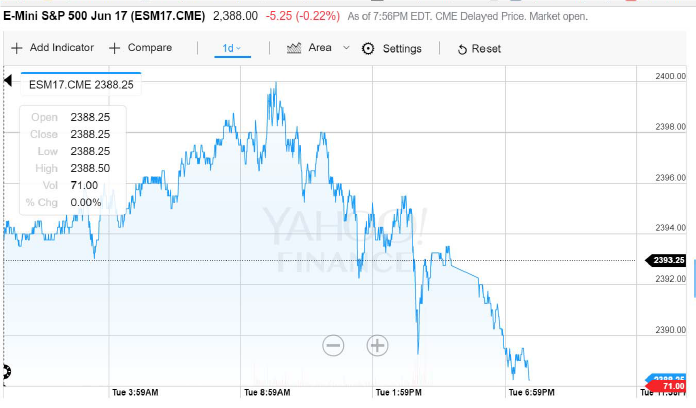How much does the U.S. government owe? The number that is subject to the recurrent debt-ceiling wrangling includes intra-government debts that the Treasury is imputed to owe to other Federal government operations. For example, Social Security taxes have historically exceeded benefits paid out. The surplus was used to pay for other government programs, and the Social Security Trust Fund was credited with corresponding holdings of U.S. Treasury securities representing the accumulated value of those surpluses. Many of us think of this as an I.O.U. that the government issued to itself. Economists usually subtract those intra-government debts when talking about the size of the federal debt, relying instead on the Treasury’s measure of debt held by the public. Although many of us have made use of the latter numbers in academic research, policy analysis, and lectures to our students, those data are also getting less reliable in recent years.
Continue reading
Category Archives: financial markets
“The Transmission of Macroprudential and Monetary Policies across Borders”
That’s the title of a one day conference at the margins of the IMF-World Bank Spring Meetings, organized by the International Banking Research Network (IBRN) and the Monetary and Capital Markets Department of the IMF, aimed at featuring research on the international transmission of macroprudential and monetary policies and to discuss policy implications from this research.
“Exchange Rate Models for a New Era: Major and Emerging Market Currencies”
That’s the title of an upcoming conference organized by Global Research Unit at Department of Economics and Finance, City University of Hong Kong, Bank for International Settlements, Asian Office, Centre for Economic Policy Research, and Journal of International Money and Finance, May 18-19 at City University Hong Kong. The conference program is here, official conference website here.
Economic Policy Uncertainty Likely to Rise
In the wake of the decapitation of the FBI, financial indicators suggest a negative shock. I suspect an increase in uncertainty, given that political turmoil could cloud the path of economic policy implementation (tax reform/cuts, infrastructure, etc.). Here is the S&P 500 futures for June 2017.

Source: Yahoo Finance accessed as of 5:05PM Pacific.
Guest Contribution: “Mnuchin, Multilateral Meetings, Money Manipulation, and Message Mayhem”
Today, we present a guest post written by Jeffrey Frankel, Harpel Professor at Harvard’s Kennedy School of Government, and formerly a member of the White House Council of Economic Advisers. A shorter version appeared on March 22nd in Project Syndicate.
What If China Gave Mr. Trump What He Says He Wants: A Stronger Chinese Currency
Well, given the trilemma, and limits to capital control efficacy, it’ll mean more PBoC decumulation of US Treasurys, and holding all else constant, higher long term interest rates.
Guest Contribution: “On the Global Financial Market Integration “Swoosh” and the Trilemma”
Today we are pleased to present a guest contribution written by Geert Bekaert (Columbia University) and Arnaud Mehl (ECB). This post is based on the paper by of the same title. The views expressed are those of the authors and do not necessarily reflect those of the ECB or the Eurosystem.
Guest Contribution: “Let the US Fiduciary Rule Go Ahead”
Today, we present a guest post written by Jeffrey Frankel, Harpel Professor at Harvard’s Kennedy School of Government, and formerly a member of the White House Council of Economic Advisers. A shorter version appeared on February 21st in Project Syndicate.
Repealing Dodd-Frank and Basel III
One of the responses to the financial turmoil of 2008 was new legislation and regulation intended to prevent such a disaster from recurring. These measures include the Dodd-Frank Act of 2010 and the third international accord from the Basel Committee on Banking Supervision of 2010-11. But today there are powerful voices seeking to amend or overturn these measures. President Donald Trump said on December 12:
We have to end Dodd-Frank…. The head of the banks, they’re petrified of the regulators….I mean, unless you have 5 time what you want to borrow, they don’t lend you any money. They’re afraid to loan people money and those are the people that should be able to borrow.
And Representative Patrick McHenry (R-NC), Vice Chair of the Financial Services Committee, wrote on January 31:
Agreements like the Basel III Accord … turned into domestic regulations that forced American firms of various sizes to substantially raise their capital requirements, leading to slower growth here in America.
Here I review the motivations for Dodd-Frank and Basel III and some of the proposals to amend or replace them.
Continue reading
Paying for the Wall/Fence: Capital Controls Edition
Can we fund the partly see-through wall by taxing worker remittances?